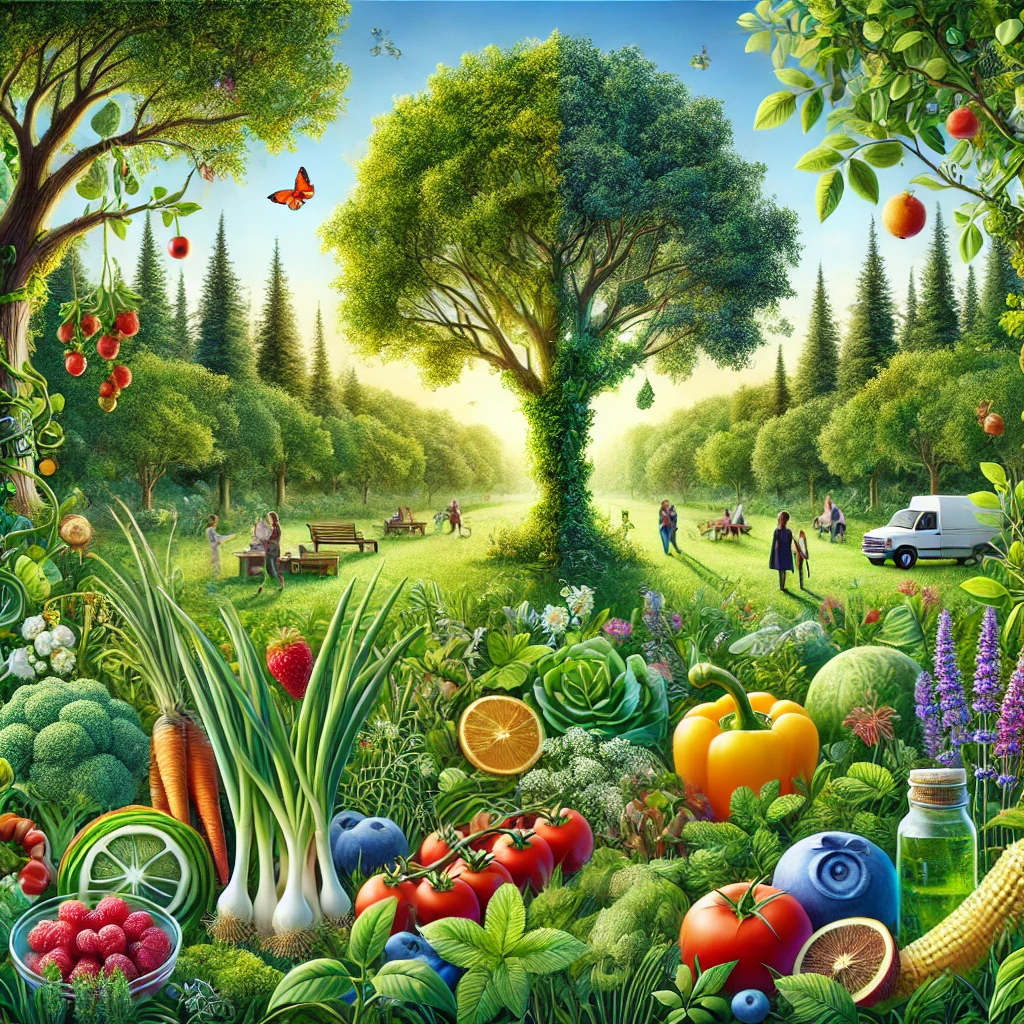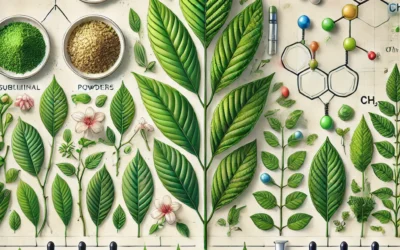The Incredible Power of Plants: How Nature Sustains, Heals, and Inspires
Plants are more than just part of our environment—they are the very foundation of life. From nourishing our bodies to purifying the air we breathe, the power of plants is undeniable. In this blog post, we’ll explore the many ways plants impact our lives, health, and the planet, showing why they are essential to our survival and how they can pave the way to a more sustainable future.
1. Plants as Nutritional Powerhouses
Plants form the backbone of our diet, offering an abundance of essential nutrients. Rich in vitamins, minerals, antioxidants, and fiber, they provide the building blocks for a healthy lifestyle. Whether it’s leafy greens, fruits, or legumes, incorporating plant-based foods into our daily diet promotes heart health, boosts immunity, and supports overall well-being. For those aiming to adopt a more balanced and health-conscious lifestyle, plant-based nutrition offers a wealth of benefits.
2. Medicinal Plants: Nature’s Pharmacy
For millennia, plants have been at the forefront of medicine. From ancient herbal remedies to modern pharmaceuticals, plant-based compounds continue to be used to treat a wide variety of ailments. Many of today’s medications, including aspirin and digitalis, are derived from plant sources. As scientific research continues to unlock the healing power of plants, we are rediscovering how powerful these natural remedies can be for our health.
3. Oxygen Production: Plants as Earth’s Lifeblood
One of the most vital power of plants is their ability to produce oxygen through photosynthesis. This process not only helps balance atmospheric gases but also sustains all oxygen-breathing organisms. Without plants, life on Earth as we know it would cease to exist. As they absorb carbon dioxide and release oxygen, plants play a critical role in mitigating the effects of climate change and ensuring the longevity of our planet.
4. Environmental Guardians: Maintaining Ecological Balance
Plants are nature’s unsung heroes when it comes to maintaining environmental balance. They prevent soil erosion, support the water cycle, and provide habitats for a wide range of species, contributing to biodiversity. Forests, wetlands, and grasslands all rely on plant life to regulate their ecosystems, and in turn, plants help preserve the delicate balance of life on Earth.
5. Plants Improve Air Quality
Air pollution is a growing concern, but plants offer a natural solution. Trees, shrubs, and other vegetation help filter harmful pollutants from the air, improving air quality in both urban and rural areas. By absorbing carbon dioxide and other harmful gases, plants act as a natural air purifier, making the air we breathe cleaner and healthier.
6. Renewable Resources for a Sustainable Future
Plants are renewable resources that offer sustainable alternatives to non-renewable materials. From timber and paper to biofuels, plants can be harvested and replenished, making them essential in the fight against resource depletion. Innovations in plant-based technologies, such as bioplastics and bioenergy, are providing new ways to reduce our reliance on fossil fuels and minimize our carbon footprint.
7. The Beauty and Joy of Plants: Aesthetic and Recreational Benefits
Beyond their practical functions, plants add beauty and joy to our surroundings. Gardens, parks, and green spaces provide areas for relaxation, inspiration, and connection with nature. The mental health benefits of being surrounded by plants are well-documented, offering stress relief, improving mood, and encouraging physical activity.
8. Cultural and Spiritual Power of Plants
Plants hold deep cultural, spiritual, and symbolic meanings in societies worldwide. From the sacred lotus in Buddhism to the olive branch symbolizing peace, plants have been used to convey powerful messages and foster spiritual connections. Their role in rituals, traditions, and celebrations highlights the profound respect that many cultures have for the natural world.
9. Plants as a Gateway to Scientific Discovery
Plants have been essential to scientific research, shedding light on critical processes such as genetics, evolution, and ecology. By studying power of plants, scientists have gained insights into the natural world that have led to innovations in agriculture, medicine, and environmental conservation.
10. Future Innovations: Plants Paving the Way for a Greener Tomorrow
As we face environmental challenges like climate change and resource scarcity, plants offer a path toward innovative solutions. Research into plant-based alternatives—whether it’s creating biodegradable materials or harnessing bioenergy—shows that plants will continue to be a vital resource in building a more sustainable future. By prioritizing plant-based solutions, we can reduce our environmental impact and create a healthier planet for future generations.
Conclusion: Harnessing the Power of Plants for a Sustainable Future
The undeniable power of plants touches every aspect of our lives—from the food we eat to the air we breathe. As advocates for a sustainable future, we must continue to recognize the power of plants, promoting practices that respect and protect the natural world. Together, we can create a community that values plants over pills and embraces the full potential of nature to heal and sustain us.
By staying transparent and sharing what we’ve learned, we can help make “plants before pills” a reality for future generations. Let’s continue to grow this movement and advocate for the incredible power of plants!






0 Comments